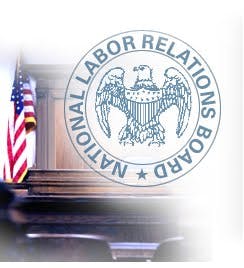By Steven Bernstein and James Walters
In the blog post we published on April 16, (Friday the 13th Not a Very Lucky Day for the NLRB) we referenced the decision of South Carolina District Court Judge David C. Norton last Friday afternoon, which marked the first time the National Labor Relations Board’s proposed notice-posting rule has been invalidated in its entirety.
We also predicted that, in light of that April 13 decision, the U.S. Court of Appeals for the D.C. Circuit (which had been hearing arguments on the appeal of the surviving parts of this rule from another U.S. District Court) now “has an opportunity to lend some clarity to the picture in the days to come.”
Clarity has certainly arrived – in a big way – in the form of a three-judge panel’s interim decision late this morning.
In a fairly terse per curiam Order, the Court of Appeals noted the South Carolina Court’s decision in Chamber of Commerce of the United States v. NLRB, and also pointed out the NLRB’s inconsistent positions as to the timing of implementation of the proposed rule (the Board agreed to a voluntary postponement while the case was pending before the lower court, but now argues that “the rule should take effect during the pendency of this court’s proceedings before this court has an opportunity to similarly consider the legal merits”).
The Court of Appeals granted the emergency motion for injunction pending appeal, and set a briefing schedule, and oral argument on “an appropriate date in September 2012.”
What this means to you is that there will be no compulsory NLRB notice-posting on or immediately after April 30, that even if the NLRB ultimately prevails in this endeavor, it won’t be until year’s end (if ever), and – hopefully – that perhaps this much-belated and ill-conceived “notice of rights” idea will never become effective at all.
This was originally published on Fisher & Phillips’ Legal Alerts. This Legal Alert is intended to provide an overview of an important new law. It is not intended to be, nor should it be construed as, legal advice for any particular fact situation.
